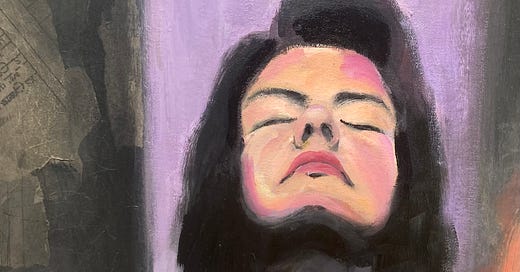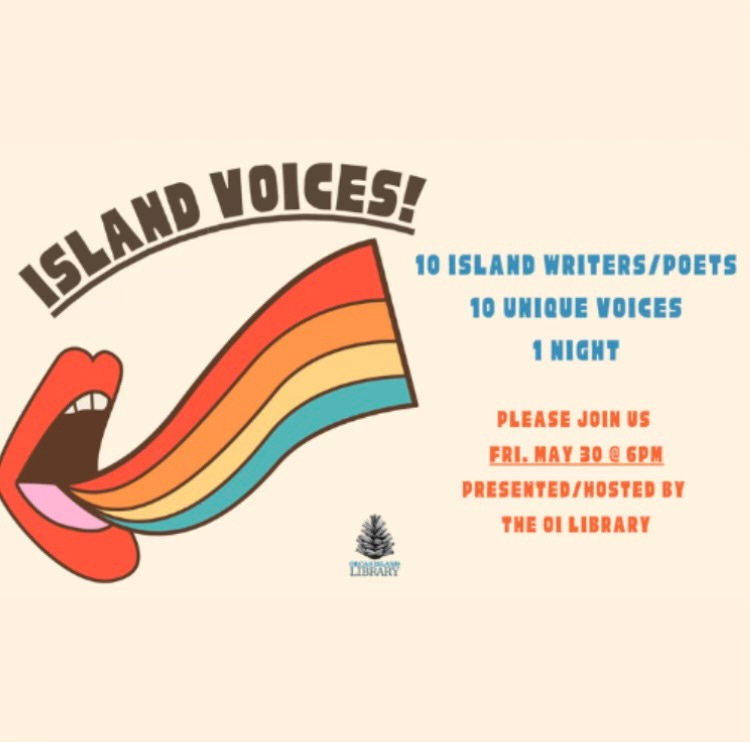My Dudes,
It’s been a minute. A very long minute. My silence hasn’t been accidental. I’ve been settling deeper into what it looks like when no one else knows what I’m up to. When I ask myself, about basically everything, who is this for?
Today marks one year of sobriety from alcohol. I’ve been in active recovery for five months now. There’s been depression these past few months, a remarkable amount of excruciating feeling, endless self-examination. As I’ve started resurfacing more recently, people want to know how I am, aka what I’ve been up to, aka what I’ve been doing. Many want me to know they’ve been worried. Others have input. It’s hard to shake the sense that everyone is looking for proof—though of what I’m not totally sure.
Entering recovery is a lot like becoming a parent. You might share about it with candor, and people might get something from it, but there’s an inherent chasm between you and anyone who hasn’t stepped over that same threshold. It’s also a thing people have endless opinions about.
I’ve always been a social person. I talk. A lot. I value candor. I have opinions and like people. I think human relationships are pretty much the only currency that matters. But in recovery I’ve become more alert to the way we tend to link care and commentary. How much we offer opinions and pushback when no one is seeking input.
Probably the most life-changing thing about recovery for me has been the experience of returning day after day, month after month, to a group of people who let me speak without commentary. Who trust me to figure out my own damn life. Who understand not only that I’m not a thing to be fixed, but that literally no one else can do my life for me. The listening is everything. I’ve always considered myself a great listener in meaningful one-on-one conversations, but I’m also a great interruptor. I have so much to say and surely that’s nothing but a gift to everyone around me at all times and my words can’t possibly do harm and everyone understands where I’m coming from and wants to always and forever. Suffice to say I’ve been grateful for guardrails which ensure I’m now mostly a listener.
My main reason for not writing in the past few months has been a disinterest in feedback. Initially, I didn’t understand my life, never mind have strength to explain or defend it. When I look back on the years leading up to my sobriety, there’s a mounting desperation to be seen. Understood as a woman and mother with depression and ADHD, an artist cut off from her inner life, an addict. By those who would understand. I didn’t need it pointed out. I knew. I wanted acceptance. Which is exactly the opposite of having to prove yourself. Being trusted to be you.
Growing up there were 2 questions I feared above all others.
What’s your favorite band? I was weirdly sheltered and behind on pop culture and was terrified the wrong answer would ostracize me forever and also how do you pick a favorite?
What do your parents do? Neither parent was consistently employed because of a combination of creativity and mental illness and disability and I grew up around rich kids whose parents were lawyers and professors. This question still triggers shame.
As I’ve aged and become more righteous, I’ve started responding to questions like “What do you do?” with passive aggressive/aggressive questions of my own. “Are you actually asking how I earn money?”
It’s a tiny but mighty word, “do.” There are endless connotations and attached expectations. Visible action, performance, the implication of reaching goals, achieving things, completing them. As a creative with ADHD, a lifetime of attempting to “do” formed a deep well of shame and self-loathing. I simply can’t do like others can. Time is bendy and I’m aware of everything everywhere all at the same time and schedules make no sense to me. Also, why, exactly, is doing so great? I’m not the only one wondering. I discovered Bianca van der Meulen because of her Substack Playing in Public and we have weird brain synchronicities. Is the doing thing existential? Do we need literal proof to know we exist?
The point is this: there is no other you in the world, and also many others a lot like you who get you and very much want you to be exactly you. It turns out actively practicing being me means actively practicing doing nothing. Surrender has always made more sense to me. Willingness over willfulness. It’s damn hard to be an artist without leaning back and letting the work come. My work is listening and feeling. My recovery work—but also my work-work, my vocation, my contribution to the world. Some people build objects and others carry heavy shit and I feel and then try to turn the feeling into something to help others feel ok about feeling. I used to struggle to carve out a corner of my life to dedicate to this, and I now understand it has to be the life. I don’t get paid for it (yet), but it’s straight up why I’m on the planet.
I love the word recovery as a description of the arduous struggle to overcome compulsion. It’s not discovery, it’s a return, a reclamation of something once held then lost, possibly stolen. Dr. Joyce Brothers said, “Love comes when manipulation stops . . . when you dare to reveal yourself fully, when you dare to be vulnerable.” There’s nothing in the world more courageous than being vulnerable. It’s the highest of high-risk, raises our chances of exposure to impossible pain. But it also skyrockets our chances of experiencing true and expansive and unconditional love. The way I see it, addiction is a battle with manipulation—manipulation of others, but especially ourselves. Recovery is the reclamation of our birthright, a return to our truest and deepest self. There’s no recovery without vulnerability. My new Harry Potter universe is packed with people taking on the most courageous task there is. I have them to thank for helping me find the strength to believe and remember, and then remember again each day, that I actually, truly, get to just make it up.
Also, I’m still a writer. A writer who does readings. Come to the Orcas Island Library Friday the 30th at 6pm to support island writers and hear me read.
Your Optional Assignment:
It is a joy to be hidden and a disaster not to be found. — D. W. Winnicott
Set an alarm for 10 minutes. Imagine you’re playing hide & seek with two parts of yourself. Name them both. You can write it all down or stare at a wall or out a window or in the mirror. One way you know it’s play is there’s no such thing as doing it wrong.






This feels like a feast of insights!
“Some people build objects and others carry heavy shit” — reminds me of a Substack I just read about how often people/we rush to increase their/our power (doing, building, increasing responsibility) without building up the strength to hold it well.
I for one do very much do want you to be you, whatever that means about the doing. Celebrating what you’ve recovered so far and all the rest to come 🎉
Rethinking the word/process of recovery, thank you very much! Love reframing it as a return to oneself